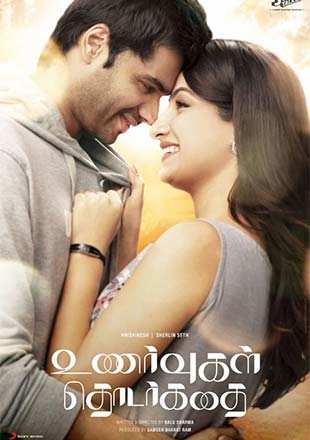Ben Smallbone’s “Homestead” takes place in a world where foreigners detonate a nuclear bomb off the coast of Los Angeles, the protagonists are saved because they own a Tesla, Bitcoin is the only valuable currency, and the truth can only be told on Right Wing radio. For some people that’s a selling point. For many others, it’s a list of red flags.
It’s easy to think of films like “Homestead” as if they live on the fringe of mainstream media, but though this particular film isn’t a major studio release, they’re hardly uncommon. Hit movies like “Black Hawk Down” and “300” have shamelessly vilified non-white antagonists, portraying them as fodder for heroic, mostly white hunks to mow down with impunity, sometimes in dramatic slow-motion. “Forrest Gump” is the story of a man who does everything he’s told to do, like joining the Army and embracing capitalism and participating in anti-communist propaganda, and he becomes a great American success story. Meanwhile, the love of his life suffers decades of indignity by throwing in with anti-war protesters and Black Panthers, and for all her trouble she dies of AIDS.
The point is, this is not an unusual starting point for a film. “Homestead” is up front about it. It’s clear from the start who this movie is for and what this movie respects. What is surprising is that this production, based on the first of a series of novels by Jeff Kirkham and Jason Ross, also has real conversations about moral conflicts and ethical crossroads. By the end, it even declares that Christian charity is more important — and also more productive — than selfish nationalism. For a minute, right before the credits roll, even people who aren’t in the film’s target demographic might be forced to admit that “Homestead” is, for what it is, one of the better films of its ilk.
And then the movie whizzes all that good will down its leg at the last possible second, contradicting its own morals in a shameless attempt to bilk the audience.
We’ll get back to that. “Homestead” stars Neal McDonough (“Tulsa King”) and Dawn Olivieri (“Lioness”) as Ian and Jenna Ross, a fabulously wealthy couple whose gigantic estate, vast hoard of doomsday supplies and seemingly unlimited arsenal make them uniquely prepared to survive the country’s collapse. At least one major city has been nuked, the power has gone out across the nation and everyone who didn’t prepare for doomsday scenarios is looking pretty silly right now. They’re also looking directly at the Ross estate, Homestead, as their possible salvation.
As such, Ian enlists a team of ex-Navy SEALs to guard Homestead. They’re led by Jeff Eriksson (Bailey Chase, “Longmire”), who uses the opportunity to keep his own family safe. His teenage son, Abe (Tyler Lofton), is the same age as Ian’s daughter Claire (Olivia Sanabia), and nobody else is a teenager, so that romantic subplot is a foregone conclusion. Jeff also has a daughter named Georgie (Georgiana White) who has psychic visions of the future. You might think that would be important later, but leave the fortune-telling to Georgie because she knows (as far as this movie is concerned) that it won’t.
Tensions flare between Ian, who only wants to hold the fort until the American government gets its act together, and Jeff, who assumes civilization will quickly collapse like soufflé at a Gwar concert. Meanwhile, the hungry refugees, some of whom are Ian’s friends and associates, camp outside their gates, desperate to get to safety. Jenna wants to give them food and shelter, but Ian is doing the math and says their supplies won’t last: “What you give to them, you’re taking from us. It’s that simple.”
Gloom and doom fantasies like “Homestead” take place in the very contrived situations where everything you’ve always feared, and for which everyone mocked you for believing in, finally come to pass. ‘Oh no, the government is here to help,’ in the form of a sniveling bureaucrat who wants to inventory Homestead’s supplies and redistribute them to people in need — that monster. Thank God we bought the Tesla with the “Bioweapon Defense Mode,” that wasn’t paranoid at all.
Then again, in the midst of all this anti-refugee rhetoric and pro-billionaire propaganda, cracks in “Homestead’s” façade start to form. Ian’s pragmatism isn’t preventing Homestead from running out of supplies. Jeff’s paranoia seems to be costing more lives than it saves. There’s even a scene where the same woman whose life was saved by a Tesla bemoans how dangerous the vehicle was when her family got attacked by looters, and screams, “Why?! Why did we buy a Tesla?!”
By the end, “Homestead” has explored at least some nuanced perspectives on the real moral issues it raises. With a mostly game cast and efficient, professional direction by Smallbone (“Stoned Cold Country”), it’s not a badly made movie from a technical perspective. And the film’s final message, espousing the positive Christian value of charity, and both the importance and practicality of being generous to the needy, is hard to dispute.
Until, again, the movie’s actual ending. This part won’t require a “spoiler warning” because, A.) It doesn’t spoil the plot; and B.) It’s more like a warning label. This part of the film should have been clearly labeled on the package — like “Smoking causes cancer” or “This paint contains lead.”
It’s a bit of an annoyance to discover that “Homestead” is actually the pilot episode of an ongoing series, which you are expected to commit to now that you’ve bought into it with cold, hard cash. Not that there’s anything horribly wrong with that storytelling approach, but you probably went into this theater expecting a standalone movie and it’s hard not to feel a bit scammed, like you just bought a brand-new AAA game and found out most of its content is still locked behind an additional paywall. The TV series version of “Homestead” isn’t even mentioned on the film’s Wikipedia page, at least not by the time this review was written.
But more than that, “Homestead” ends with a cast member breaking character, speaking directly to the audience, and saying that with Christmas right around the corner, you should be thinking about charity. But they don’t suggest donating to the needy, like the actual film preaches. Instead, they tell you to give more money to the filmmakers. You are encouraged, with the help of an on-screen QR code that stays on-camera throughout the whole credits, to buy a stranger a ticket to “Homestead,” which they may or may not even use, thus artificially inflating the film’s box office numbers and the industry’s perception of its success. It would be one thing if they were straightforward about this: “Please give us money to make more stuff like this.” That’s not the worst thing in the world. But to couch this in terms of charity? It’s very difficult not to take issue with that.
Is this a bad business model? That depends on your values. If you value business, sure, that’s a way to make money. You show people a film designed to convince them that they should be charitable and then tell them to be charitable by giving you more money. Is it ethical? Is it a little hypocritical? Is it not just a little hypocritical, but in outright defiance of everything you just said you believed in?
I suppose your mileage may vary. I couldn’t help but feel like I was being scammed. Just when I was finally enjoying the film, I was given every reason not to. Any movie that espouses the Christian value of generosity and then tells its audience the best way to be charitable is to make the filmmakers richer is hard to recommend in good conscience, even if it is otherwise pretty well made.
“Homestead” is now playing in theaters.





























/cdn.vox-cdn.com/uploads/chorus_asset/file/25782636/247422_ChatGPT_anniversary_CVirginia.jpg)
/cdn.vox-cdn.com/uploads/chorus_asset/file/25789444/1258459915.jpg)

/cdn.vox-cdn.com/uploads/chorus_asset/file/25546252/STK169_Mark_Zuckerburg_CVIRGINIA_D.jpg)


/cdn.vox-cdn.com/uploads/chorus_asset/file/23951353/STK043_VRG_Illo_N_Barclay_3_Meta.jpg)